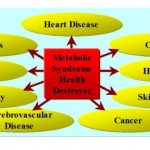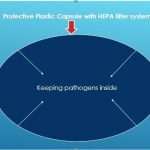
By Subrina Jesmin Arai MD, Ph.D.
The FDA gave Sherlock Biosciences an emergency use authorization, making them the first company to get approval for the coronavirus disease (COVID-19) diagnostic assay. CRISPR is an old bacterial immune system that possesses a programmable protein that cuts DNA or RNA. Using CRISPR as a diagnostic toolcan leverage the targeting power of gene-editing technology.
There are two young companies, Cambridge-based Sherlock Biosciences and San-Francisco-based Mammoth Biosciences , that are working hard to create CRISPR-based diagnostics a reality. A few associated academics are helping them.
The mainstay of CRISPR genome editing is an enzyme called Cas9. This enzyme that works like a pair of molecular scissors and cuts DNA at any targeted location. Mammoth Biosciences has come up with a new technology called DETECTOR ( DNA Endonuclease Targeted CRISPR Trans Reporter) that depends on another enzyme called Cas12. Cas12 is a distant-related cousin of Cas9. The Cas12 enzyme can be used as a molecular paper shredder. With that, officials can use CRISPR to detect the presence of target DNA in real-time.
The latest version of the Sherlock CRISPR SARS-CoV-2 kit uses a method for programming a CRISPR molecule to detect the existence of a specific SARS-CoV-2 genetic signature among specimens accumulated from patients suspected to have COVID-19 by a healthcare provider .
The scientists at MIT have tested the Sherlock kit with nasopharyngeal swabs from patients with COVID-19. They also tested the kit with saliva samples from healthy individuals to which the virus was newly added. The Sherlock testing kit showed full specificity and had no false-positive results.
The tests for COVID-19 detection, whether RT-PCR or serological, depend on samples being delivered to central labs from the point of care. So, the patients have to wait several days before they know whether they are infected or not.
Keep in mind that the CRISPR locus had been initially discovered in 1987. The COVID-19 pandemic is not the first time that scientists have worked on building the Cas12-based detection system for diagnosing diseases. Open sharing played an essential role in scientists developing CRISPR diagnostics for multiple disease outbreaks.
In recent times, the company has been working hard to scale its production of the Sherlock test kit, and the company is working to develop an INSPECTR platform (internal splint-pairing expression cassette translation reaction). As per the reports, INSPECTR will lead to the creation of an instrument-free, handheld-test, which is the same as an at-home pregnancy test. It uses Sherlock Biosciences’ platform to provide quick identification of a genetic match to SARS-CoV-2.
The COVID-19 pandemic is a reminder for many of us that CRISPR tools are quick and can be adapted into many systems. On top of that, CRISPR diagnostics need minimal to zero equipment and are more accurate than the conventional method. In the end, CRISPR diagnostics can be made obtainable as a handheld device.

 Previous Post
Previous Post Next Post
Next Post